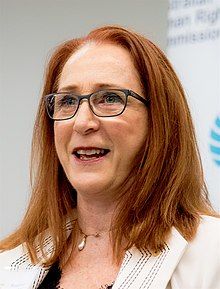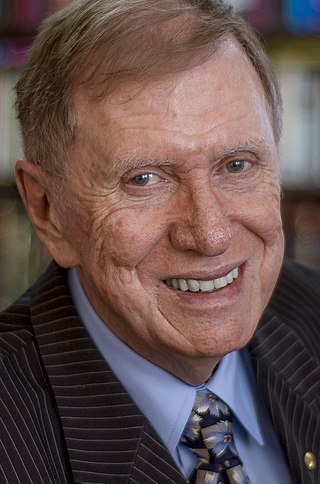
Michael Donald Kirby is an Australian jurist and academic who is a former Justice of the High Court of Australia, serving from 1996 to 2009. He has remained active in retirement; in May 2013 he was appointed by the United Nations Human Rights Council to lead an inquiry into human rights abuses in North Korea, which reported in February 2014.

Helena Ann Kennedy, Baroness Kennedy of The Shaws, is a Scottish barrister, broadcaster, and Labour member of the House of Lords. She was Principal of Mansfield College, Oxford, from 2011 to 2018. A Bencher of Gray's Inn, an Honorary Writer to the Signet and the recipient of 42 Honorary Degrees from many universities including those of Glasgow and Edinburgh in recognition of work on women and the law and on widening participation in higher education. She is President of Justice, the law reform think tank, and is also director of the International Bar Association's Institute of Human Rights.

George Henry Brandis is an Australian former politician. He was a Senator for Queensland from 2000 to 2018, representing the Liberal Party, and was a cabinet minister in the Abbott and Turnbull governments. He was later High Commissioner to the United Kingdom from 2018 to 2022.

The Racial Discrimination Act 1975(Cth) is an Act of the Australian Parliament, which was enacted on 11 June 1975 and passed by the Whitlam government. The Act makes racial discrimination in certain contexts unlawful in Australia, and also overrides state and territory legislation to the extent of any inconsistency.
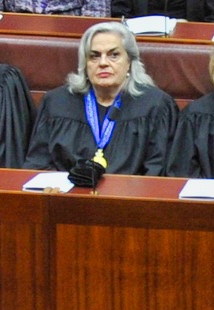
Susan Maree Crennan is a former Justice of the High Court of Australia, the highest court in the Australian court hierarchy.
The Australian Law Reform Commission is an Australian independent statutory body established to conduct reviews into the law of Australia. The reviews, also called inquiries or references, are referred to the ALRC by the Attorney-General for Australia. Based on its research and consultations throughout an inquiry, the ALRC makes recommendations to government so that government can make informed decisions about law reform.
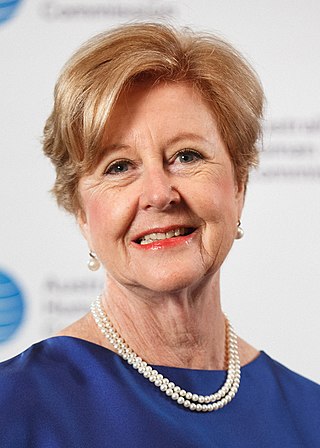
Gillian Doreen Triggs is an Australian academic specialising in public international law. In 2019, she was appointed by United Nations Secretary-General António Guterres as Assistant Secretary-General of the United Nations. In this capacity, she will serve as the Assistant High Commissioner for Protection in the team of the United Nations High Commissioner for Refugees Filippo Grandi.

Nicholas Richard Cowdery, is a barrister who served as the Director of Public Prosecutions for the Australian state of New South Wales from 1994 to 2011. Cowdery also served as president of the International Association of Prosecutors from 1999 to 2005.
Elizabeth Andreas Evatt, an eminent Australian reformist lawyer and jurist who sat on numerous national and international tribunals and commissions, was the first Chief Justice of the Family Court of Australia, the first female judge of an Australian federal court, and the first Australian to be elected to the United Nations Human Rights Committee.

Susan Mary Kiefel is an Australian lawyer and barrister who was the 13th Chief Justice of Australia from 2017 to 2023. She concurrently served on the High Court of Australia from 2007 to 2023, previously being a judge of both the Supreme Court of Queensland and the Federal Court of Australia. Kiefel is the first woman to serve in the position of Chief Justice.

Catherine Margaret Branson is a former Australian judge and public servant. She was a judge of the Federal Court of Australia from 1994 to 2008, and then President of the Australian Human Rights Commission from 2008 to 2012.

Virginia Margaret Bell is a former Justice of the High Court of Australia, the highest court in the Australian court hierarchy. She was sworn in on 3 February 2009, and retired on 28 February 2021.
Peter David McClellan is a retired judge of the New South Wales Court of Appeal who served between February 2013 and February 2018. McClellan was the Chief Royal Commissioner of the Royal Commission into Institutional Responses to Child Sexual Abuse from January 2013 to December 2017. He was previously the Chief Judge in Common Law in the Supreme Court, a position to which he was appointed in 2005.
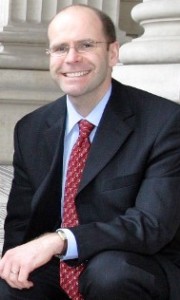
George John Williams is the Vice-Chancellor and President of Western Sydney University.
Mary Josephine O'Kane, AC an Australian scientist and engineer, is the Chair of the Independent Planning Commission of New South Wales. She is also a company director and Executive Chairman of O’Kane Associates, a Sydney-based consulting practice specialising in government reviews and research and innovation advice to governments in Europe, Asia and Australasia.

Megan Jane Davis is an Aboriginal Australian activist and international human rights lawyer. She was the first Indigenous Australian to sit on a United Nations body, and was Chair of the UN Permanent Forum on Indigenous Issues. Davis is Pro Vice-Chancellor, Indigenous, and Balnaves Chair in Constitutional Law at the University of New South Wales. She is especially known for her work on the Uluru Statement from the Heart.
Alice Erh-Soon Tay (1934–2004) was an Australian academic lawyer, an eminent jurisprudence and comparative law scholar. She was president of the Australian Human Rights and Equal Opportunity Commission from 1998 to 2003.
Christopher 'Chris' Dominic Sidoti is an Australian expert on international human rights law, a lawyer and advocate. He is a former Human Rights Commissioner, and a former commissioner of the Australian Law Reform Commission, and has held a range of other distinguished posts.
Kate Eastman is a leading Australian human rights lawyer and academic. She was co-founder of the Australian Lawyers for Human Rights (ALHR) in 1992 and was for many years President.
Rosemary Kayess is an Australian human rights lawyer, disability rights activist, researcher and academic. She is a senior research fellow at the University of New South Wales Faculty of Law and the chair of the UN Committee on the Rights of Persons with Disabilities, having contributed to the Convention on the Rights of Persons with Disabilities in 2004. Kayess has also been the director of several non-governmental organizations throughout her career, advocating for disability rights and the implementation of the UN convention in Australia and abroad. She was awarded the Australian Human Rights Medal in 2019 for her contributions to human rights in Australia.
